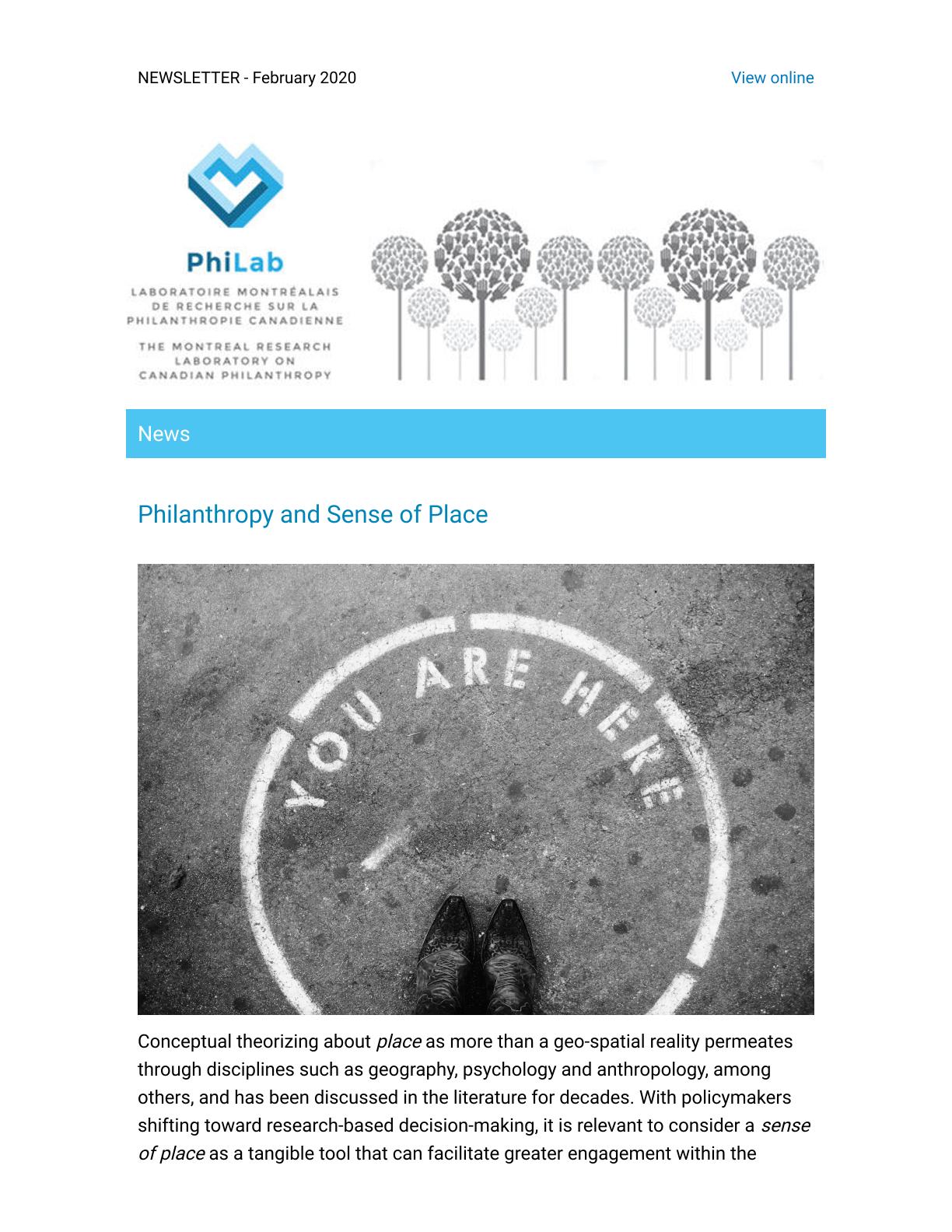Conceptual theorizing about place as more than a geo-spatial reality permeates through disciplines such as geography, psychology and anthropology, among others, and has been discussed in the literature for decades. With policymakers shifting toward research-based decision-making, it is relevant to consider a sense of place as a tangible tool that can facilitate greater engagement within the philanthropic landscape. As a person begins to identify through a particular place, an attachment is formed and a sense of belonging or meaning emerges in the person. It is this place-attachment coupled with a place-identity that forms a cohesive sense of place in an individual.
Driven by the Atlantic Hub, this special edition on Philanthropy and Sense of Place shares information on nation-building and how branding in the Canadian context empowers (or disempowers) philanthropic organizations. Furthermore, we share recent studies involving sense of place as it exists in Atlantic Canada, and more specifically, Newfoundland and Labrador.
Enjoy your reading!
- Editorial: Sense of place and the potential to build a stronger philanthropic network in Newfoundland and Labrador, by Brady Reid, Atlantic Hub
- Philanthropic Nation Branding, by Adam Saifer, Quebec Hub
- Exploring the intersection of sense of place, charitable giving and mobile work in Newfoundland and Labrador, by Brady Reid and Kelly Vodden, Atlantic Hub
- Has Philanthropy Found its Place? Place-based Philanthropy for Community Building in Australia and Canada, by Susan Phillips and Wendy Scaife, Ontario Hub
- What place for ‘place’ in funding the voluntary sector? by Ruth Gripper and NPC, published on the Alliance Magazine blog
- Giving a Sense of Place: Philanthropy and the future of UK civic identity, by the Charities Aid Foundation
- Podcast: The importance of Donor Retention and How we can Improve our Efforts, by The Philanthropy Podcast
February 2020 Newsletter: Philanthropy and Sense of Place
 Special Edition: Philanthropy and Sense of Place
Special Edition: Philanthropy and Sense of Place


